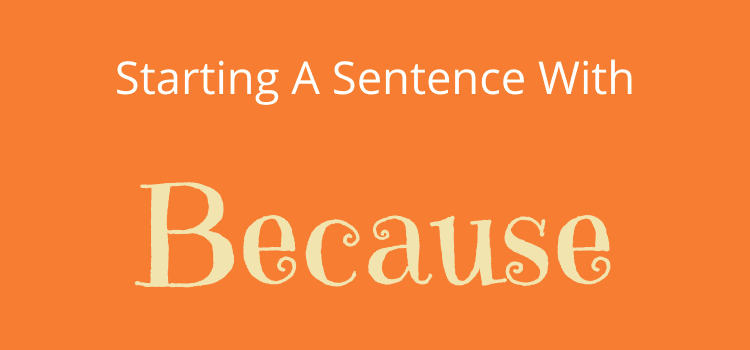
Why bother with learning grammar when there are so many writing checkers and AI (artificial intelligence) tools to fix your errors?
All you need to do is paste in your text, and hey presto, it’s 100% grammatically correct.
However, these tools don’t always understand what you want to say.
Sure, they can catch obvious mistakes, but they don’t know, and can’t replicate your unique voice, tone, or writing style.
How you can use grammar in your writing
You don’t need to be a grammar expert, but it helps to have a little bit of knowledge and keep building on it.
Writing checkers can highlight a problem, but a suggested change is not always the best option.
Here are two quick examples for you to consider.
“I tried to bake bread, but failed.”
“I tried baking bread, but failed.”
Most grammar checkers will tell you that the comma should be removed, and may indicate that the infinitive or gerund is correct.
But these suggestions will change the meaning of what you want to say.
The infinitive says that you made an effort to bake, but something prevented it, or it didn’t go as planned. The gerund, however, says that you actually baked the bread, but the result was a failure: burnt, flat, or otherwise inedible.
As for the comma, yes, it is not grammatically correct because the second clause has no subject. But for style and reading, the comma helps separate the action from the result and avoids repeating the subject.
Both examples above are perfectly acceptable, but a little grammar knowledge will help you make the best decision for your writing, message, and writing voice.
Some grammar rules are for you to use, break, or bend
Never end a sentence with a preposition is an old grammar rule that was drilled into my brain when I was at school.
Everyone knows this rule, but we rarely apply it any longer. For informal, casual, or communicative writing, it’s fine.
“My brother is the only person I can rely on.”
However, if you are writing a formal or business letter or an academic or scientific paper, the rule still often applies.
“After extensive research, we believe you can rely on our findings.”
The key point here is that, yes, there is a rule, but rigidly following it will often weaken your writing or make it sound pretentious.
Another classic rule is that you should never use passive voice in writing. It is very bad advice, particularly for fiction writers trying to create suspense or mystery. When you know what passive voice is and how to recognise it, you can choose the best option for your text.
Lastly, sentence fragments are usually flagged by grammar checkers, but they are not always mistakes. In many cases, they are intentional and acceptable.
Here’s one that you might find in fiction dialogue.
“No turning back now!”
Yes, it’s missing a verb and subject, so it’s a fragment. But to rectify it would sound unnatural and wordy.
“There is no turning back now!”
However, beware that rules like subject-verb and number agreement, correct punctuation, and capitalization are quite fixed and rigid.
“so you can never say, that he eat, an apples each day.”
Other optional grammar rules
Okay, so the rule goes that you should never split the infinitive. Is it a rule to blindly follow?
Of course not, and here’s why.
During the 17th and 18th centuries, grammarians tried to apply Latin grammar rules to English because Latin was perceived to be a superior language.
However, infinitives in Latin are only one word, but in English, there are two: to plus the verb.
Today, splitting infinitives is fine, and we should probably thank Star Trek for making this obsolete rule famous.
Another almost obsolete rule says that you shouldn’t start a sentence with a conjunction like as, for, but or so.
So, what’s the problem? As you can see, I rarely apply it now. For readability and flow, it’s a perfectly fine grammar rule to consistently break. (Oops, a split infinitive!)
I remember when the word they was always plural. But I’m long in the tooth.
In writing today, using they and their as plural or singular pronouns is fine. It’s a choice writers can make to ensure that their writing is concise or perhaps gender-neutral.
“Oh look! Someone forgot their briefcase.”
Here’s how to make this sentence grammatically correct under the outdated rule.
“Oh look! Someone forgot his or her briefcase.”
You can find many grammar rules that you can break or bend. But you can only do it if you learn a little bit of grammar first.
But an AI checker is faster
Yes, okay. When you use an AI grammar checker or ChatGPT, it will do most of the heavy lifting for you, and almost instantly.
But what do you achieve?
The major problem is that tools like these run on a standard set of grammar rules, so they are quite rigid.
If you accept all the corrections they suggest, it can make your writing cold and bland, and you lose your individual style and writing voice.
It’s the reason why grammar is still important for new writers, because the more you learn, the more you can make your writing yours.
I never use a grammar checker when I’m writing, but I just turned on Grammarly to check my writing so far.

As you can see, it is indicating 29 points to fix. But all of these are style, vocabulary, or grammar choices I have made as I have written this text.
While they are not errors, if I followed every suggestion, it wouldn’t be my writing any longer.
For new writers, however, they are great learning points, because you can investigate, learn a little, and make better decisions in the future.
Summary
Grammar is still important for new writers to learn because the rules and terms are the building blocks of good writing.
You don’t need to learn everything, take a course, or strive to be an expert. All you need to do is accumulate your knowledge as you progress and learn from your writing.
Grammar checking tools are a great way to do this, but always keep in mind that these tools are just that. Tools.
Use them to help you write better, but never to dictate what and how you write.
Related Reading: 10 Writing And Grammar Rules Waiting To Be Broken
Share This Article


